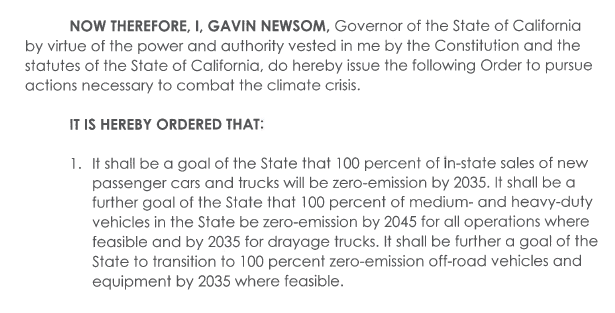
1/ Book announcement!
Making Climate Policy Work
(with David G. Victor)
🇪🇺🇬🇧EU/UK release Oct 2020, 🇺🇸US Dec 2020
@politybooks, discount code VBT99 politybooks.com/bookdetail/?is…
Making Climate Policy Work
(with David G. Victor)
🇪🇺🇬🇧EU/UK release Oct 2020, 🇺🇸US Dec 2020
@politybooks, discount code VBT99 politybooks.com/bookdetail/?is…
2/ The book pulls together big ideas in a short, accessible package. David and I look at the global experience with carbon pricing — particularly carbon markets — and ask what’s gone wrong. We set out to explain why carbon pricing hasn’t been working, then offer solutions.
3/ We’re not the first to point out political problems with carbon pricing, of course. Recently @mmildenberger and @leahstokes made their case in @BostonReview, drawing on my work in California. bostonreview.net/science-nature…
4/ But our book isn’t a polemic.
David and I take effective carbon pricing as a desirable goal. We then describe a core set of political forces that explain why these policies haven’t been working and aren’t ready to scale.
David and I take effective carbon pricing as a desirable goal. We then describe a core set of political forces that explain why these policies haven’t been working and aren’t ready to scale.
5/ The book boils down decades of work on these policies (and their politics) into a specific, testable, and easy-to-read narrative. We show that carbon pricing’s political disadvantages are structural, not ephemeral, and won’t diminish with growing demand for climate action.
6/ Our theory explains why carbon pricing has occasionally been used to accelerate coal's demise but does little to clean up transport. We also show how competitiveness concerns blunt the application of carbon prices to trade-exposed firms. qz.com/1192753/a-carb…
7/ Grappling with the details is necessary to get beyond the “carbon pricing good” / “carbon pricing bad” conversation that sometimes dominates #climatetwitter and #energytwitter.
8/ Although our book shows how politics frustrate carbon pricing at nearly every turn, it also offers insights into what’s required to make carbon pricing perform better — and why taxes are politically superior to cap-and-trade.
9/ We offer specific reforms targeted at the political barriers we identify in our critique. Governments that learn these lessons will make progress, as the EU has; those that don’t, like California’s, will get stuck in the mud.
https://twitter.com/lisalsong/status/1201979605181247494
10/ Even those that push hardest will find that prices alone aren’t enough. After identifying strategies to improve carbon pricing, we explain why smart regulations, industrial policy, and public investment will lead the way.
11/ Our bottom line: carbon pricing (especially via taxes) can support, but should not supplant, more ambitious government-led strategies.
(@GernotWager is already on the case.) gwagner.com/risky-climate-…
(@GernotWager is already on the case.) gwagner.com/risky-climate-…
12/ Not all government-led strategies work, however. We detail how policy regimes become captured by special interests, particularly when it comes to “green” climate spending — a critical problem for governments relying on public investment models.
13/ Our argument also has major implications for the climate neutrality movement (my current focus @carbonplanorg). Corporate pledges have breathed new life into carbon offsets, but many don’t appreciate how much of that industry started in public policy. carbonplan.org/research
14/ There is no a constituency for quality in policy because polluters rely on offsets to water down mandated carbon prices. Sincere buyers in private markets struggle to find quality projects today precisely because much of the original industry was built for greenwashing.
15/ David and I won’t be making many friends in the offsets business, but we are otherwise looking to unite, not divide. The two of us have distinct personal politics and approached the writing process as an exercise in finding common ground.
16/ Growing divisions between the left and center threaten to undermine climate progress in many countries. We hope our collaboration helps further dialog across ideological camps and develops an empirical record to test what works. grist.org/climate/the-bi…
17/ It’s important to add that the book is not a jeremiad against economists. If anything, our theory of politics is a full employment act for economists who seek to fine-tune climate policy portfolios because we think carbon prices won’t do that on their own.
18/ We hope to convince more of our friends in economics to inform their work with grounded, empirical views of climate politics — and to persuade those who reject markets to listen to feedback from economists who take politics seriously.
19 / Beyond those already mentioned, David and I are indebted to many others whose work informed our thinking, including @JesseJenkins, @greenprofgreen, @MarkJaccard, @Jeff_Ball, @envirolaw1, @vjkarplus, @katie4council, and @MichaelGrubb9, to name only a few.
20/ Finally, David and I are deeply grateful for the generous book endorsements from @kdeleon, @LaurenceTubiana, and @davevwright. Thank you!
21/ Interested to hear more? Come to our digital book launch on 27 October – kindly hosted by Oxford University’s @BlavatnikSchool, @TheSmithSchool, and @INETOxford, with discussion from @sugandhasri and @thomasnhale. bsg.ox.ac.uk/events/can-car…
22/ And did I mention you can buy a copy of the book?
🇪🇺🇬🇧EU/UK Oct 2020
🇺🇸US Dec 2020
If you buy direct from @politybooks, use discount code VBT99 for 20% off a very reasonable price (paperback £15.99 UK / $22.95 US). politybooks.com/bookdetail/?is…
🇪🇺🇬🇧EU/UK Oct 2020
🇺🇸US Dec 2020
If you buy direct from @politybooks, use discount code VBT99 for 20% off a very reasonable price (paperback £15.99 UK / $22.95 US). politybooks.com/bookdetail/?is…
23/ If you prefer to enrich Jeff Bezos instead, you can do that here: amazon.com/Making-Climate…
• • •
Missing some Tweet in this thread? You can try to
force a refresh




